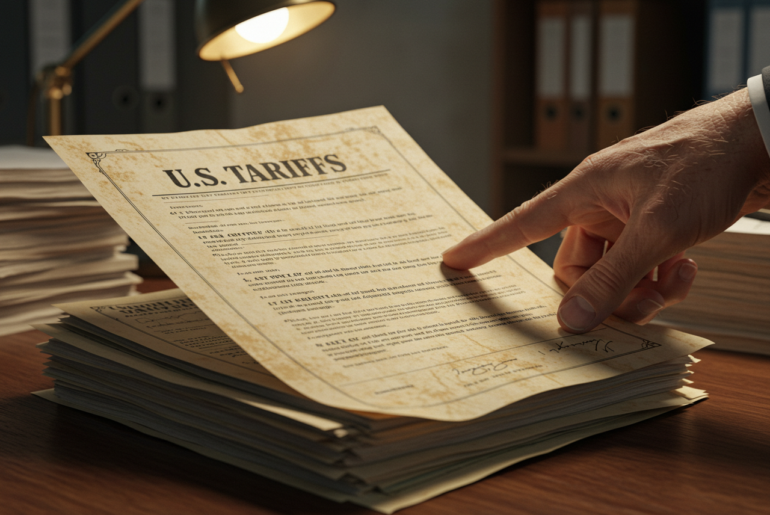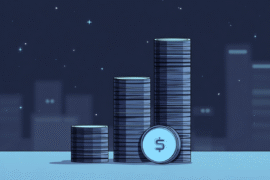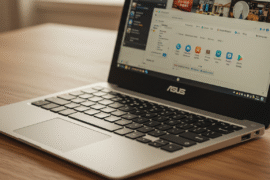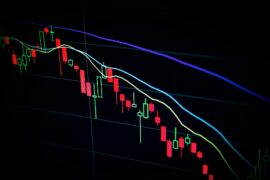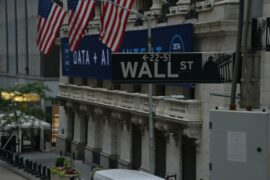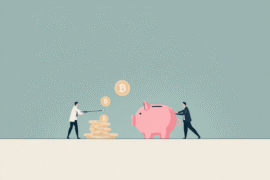This article may contain references to products or services from one or more of our advertisers or partners. We may receive compensation when you click on links to those products or services. Nonetheless, our opinions are our own.
The information presented in this article is accurate to the best of our knowledge at the time of publication. However, information is subject to change, and no guarantees are made about the continued accuracy or completeness of this content after its publication date.
- Key Highlights
- Introduction
- Understanding How 145% Tariffs Affect the Economy
- Strategies for Consumers to Reduce the Impact of High Tariffs
- Tips for Budgeting and Spending Smartly When Facing Tariff Limits
- Looking for Other Options: Finding Products Not Affected by Tariffs
- Investment Chances When Tariffs Are High
- Safe Investment Options in a High Tariff Economic Setting
- Emerging Markets: A Good Place to Invest When Local Markets are Unstable
- Government and policymakers play a big part in putting tariffs into action.
- Understanding Policy Decisions Behind High Tariffs
- Long-Term Economic Plans to Overcome Bad Tariff Effects
- Conclusion
- Frequently Asked Questions
- Recommended Reads
Key Highlights
- The World Trade Organization (WTO) says that global trade will decline because of higher U.S. tariffs. This is especially true for North America.
- These tariffs are meant to help U.S. manufacturing. However, China has reacted by taking similar actions, making trade problems worse.
- Consumers are seeing prices go up, especially for imported items. This makes it more important to budget and look for other options.
- People need to change investment plans. It is best to focus on safe things like bonds. They should also look for chances in emerging markets that feel less impact from the U.S.–China trade issues.
- It is important to understand why these tariffs are in place. Planning for steady economic growth is also key.
Introduction
As trade tensions go up, President Donald Trump has put heavy tariffs in place. This includes a 145% tariff on some Chinese goods. This has led to a worldwide trade conflict. These tariffs aim to protect U.S. businesses and lower the trade gap. However, they have caused China to respond and have added to economic worry. With these changes happening, it’s important for buyers and investors to see how these tariffs affect them. They need to find ways to deal with the challenges coming.
Understanding How 145% Tariffs Affect the Economy
The 145% tariff shows a big rise in the U.S.–China trade conflict. It acts as a strong barrier to trade. This tariff raises the cost of Chinese imports a lot for U.S. businesses and consumers.
This can have several effects on the economy. Importers usually increase their prices to pay for these extra costs. This leads to higher prices for the goods affected. Companies that depend on parts from China might run into slowdowns in their work or lose profits. This might eventually cause them to lay off workers or hire fewer people.
How Tariffs Influence Consumer Prices and Market Stability
One of the fastest effects of high tariffs is higher prices for consumers. Things like electronics, appliances, and everyday products cost more as companies raise prices for customers. This is tough for families that are already dealing with inflation and money worries.
Tariffs can also add to inflation. When the cost of imported goods goes up, it can raise prices for everything. To manage inflation, central banks might increase interest rates. This could slow down the economy even more.
Market volatility is another result. Unpredictable trade talks and changing policies can make it hard for businesses to plan. This leads to less investment and slower economic growth.
Tariffs and Their Role in International Trade
Tariffs are tools that governments use to affect international trade. They often help protect local industries. But large increases, like a 145% tariff, can cause issues in global supply chains. They can also lead to actions from other countries in response.
Countries that are hit by tariffs often reply with their own tariffs. This creates more uncertainty for businesses. This back-and-forth hurts trade planning. It also makes it harder for businesses to predict things they need for their growth and operations.
While tariffs can help in negotiations, using them too much or for too long can hurt the global economy and the well-being of consumers.
Voted "Best Overall Budgeting App" by Forbes and WSJ
Monarch Money helps you budget, track spending, set goals, and plan your financial future—all in one app.
Get 50% OFF your first year with code MONARCHVIP
Strategies for Consumers to Reduce the Impact of High Tariffs
In a high-tariff economy, people can take steps to protect their money. One important thing to do is stick to a budget. It’s also good to look at how you spend and make changes if needed.
Looking for products that are not impacted by tariffs, like local goods and second-hand items, can ease financial pressure. These ways can also give you more stability when prices change because of global trade issues.
Tips for Budgeting and Spending Smartly When Facing Tariff Limits
Careful budgeting is very important when tariffs make prices go up. When people make smart choices about money, they can deal with uncertainty better.
Here are a few smart strategies:
- Track your spending: Use budget tools or apps to watch your costs and find places to save.
- Prioritize essentials: Focus your budget on housing, food, healthcare, and transport. Cut back on non-essentials, like subscriptions or eating out.
- Shop smart: Search for deals, bulk buys, and lower-cost options. Check prices and consider other options for goods that cost more due to tariffs.
Looking for Other Options: Finding Products Not Affected by Tariffs
Consumers can lessen the cost of tariffs by figuring out which products are impacted. These include electronics, clothing, and home goods from China. They can also look for alternatives.
Think about buying similar items made in countries with no tariffs. Local products might cost a bit more, but you won’t have to pay extra import duties. Also, some companies have changed their supply chains to stay away from countries hit by tariffs. This gives you cheaper options.
Helping local businesses can give you more value. It also helps make your local economy stronger.
Investment Chances When Tariffs Are High
Volatility from high tariffs makes it crucial for investors to reevaluate and diversify their portfolios. It is important to focus on stability and long-term growth.
Assets that are seen as “safe places,” like government bonds and gold, usually get more attention when the economy is uncertain. At the same time, emerging markets that are not deeply affected by the trade dispute might provide good chances for growth.
Safe Investment Options in a High Tariff Economic Setting
During trade disputes, safe investments usually do better than riskier ones. U.S. government bonds are viewed as dependable places to keep money.
Gold is a traditional safe investment. It can help protect against rising prices and uncertain economic times. Though it can change in value in the short term, gold usually keeps its value when the economy is weak.
Investors should think about having a mixed bond collection. This should include both short-term and long-term choices from different companies with different credit scores. This way, they can reduce their risk.
Emerging Markets: A Good Place to Invest When Local Markets are Unstable
When domestic markets are in turmoil, emerging markets can provide good chances for investment. Even though these markets have their own risks, they might feel less impact from the U.S.-China tariff dispute.
When looking at new markets, it is important to think about several key factors. These include how much the market can grow, the stability of the government, the rules and regulations, and how industries are developing. Areas like technology, consumer goods, and healthcare often show strong growth and stability in these places.
A long-term approach is very important. Talking to financial experts can help reduce risk and improve your returns.
Government and policymakers play a big part in putting tariffs into action.
Governments play an important role in global trade by using tariff policies. These decisions can change how businesses work, what consumers pay, and the overall economy.
Knowing why tariffs exist helps businesses and consumers get ready and react better. Clear communication and regular checks on how well policies work are important. They help reduce any bad results that may happen.
Understanding Policy Decisions Behind High Tariffs
The tariffs set by the Trump administration come from several economic and political reasons. The aims include protecting U.S. industries, lowering the trade gap, and getting manufacturing back in the country.
Supporters say that tariffs help create fair trade and stop things like currency tricks or stealing ideas. Critics believe that tariffs make prices higher, limit the number of products, and mess up global supply chains. This can slow down the growth of the economy.
This discussion shows how important it is to use data for making policies. It also emphasizes working together with all the parties involved when putting trade actions into practice.
Long-Term Economic Plans to Overcome Bad Tariff Effects
Governments that use high tariffs need to make plans to deal with the economic problems that come from them. These plans should include:
| Long-Term Strategy | Description |
|---|---|
| Domestic Industry Support | Financial assistance, retraining, and tax incentives to help sectors adjust |
| Innovation & Investment | Encouraging research and development to increase competitiveness |
| Trade Diversification | Building new trade partnerships outside of tariff-affected countries |
These efforts can make the economy stronger. They can help provide growth for the long run even when there are short-term problems.
Conclusion
A 145% tariff can cause economic challenges. However, it also gives people a chance to think about their spending and saving habits. By learning how tariffs affect their money choices, both consumers and investors can make smart decisions to stay strong.
Looking for ways to save money, keeping to a smart budget, and spreading out investments can help reduce problems. Staying updated on policy changes lets you adjust when needed. Taking careful steps now can protect your money later, even when the economy is uncertain.
Frequently Asked Questions
How long are the high tariffs expected to last?
There is no clear timeline. Still, the trade issues between the U.S. and China show that these tariffs might stay for a long time.
What sectors are most affected by the 145% tariff?
Industries that feel the most effects include electronics, industrial machines, and items for consumers. This is especially true for those that rely on imports from China.
Are there any talks or changes coming up in tariff policies?
While there are no official announcements, officials have said they are open to future trade talks. This means there may be changes later on.

Reviewed and edited by Albert Fang.
See a typo or want to suggest an edit/revision to the content? Use the contact us form to provide feedback.
At FangWallet, we value editorial integrity and open collaboration in curating quality content for readers to enjoy. Much appreciated for the assist.
Did you like our article and find it insightful? We encourage sharing the article link with family and friends to benefit as well - better yet, sharing on social media. Thank you for the support! 🍉
Article Title: Surviving the 145% Tariff: Smart Ways to Save and Invest
https://fangwallet.com/2025/04/16/tariff-smart-ways-to-save-and-invest/The FangWallet Promise
FangWallet is an editorially independent resource - founded on breaking down challenging financial concepts for anyone to understand since 2014. While we adhere to editorial integrity, note that this post may contain references to products from our partners.
The FangWallet promise is always to have your best interest in mind and be transparent and honest about the financial picture.
Become an Insider

Subscribe to get a free daily budget planner printable to help get your money on track!
Make passive money the right way. No spam.
Editorial Disclaimer: The editorial content on this page is not provided by any of the companies mentioned. The opinions expressed here are the author's alone.
The content of this website is for informational purposes only and does not represent investment advice, or an offer or solicitation to buy or sell any security, investment, or product. Investors are encouraged to do their own due diligence, and, if necessary, consult professional advising before making any investment decisions. Investing involves a high degree of risk, and financial losses may occur including the potential loss of principal.
Source Citation References:
+ Inspo
There are no additional citations or references to note for this article at this time.
